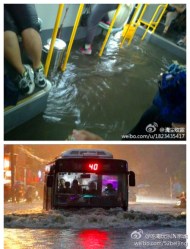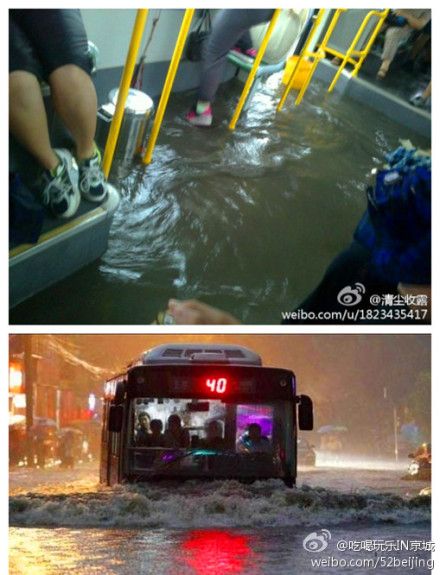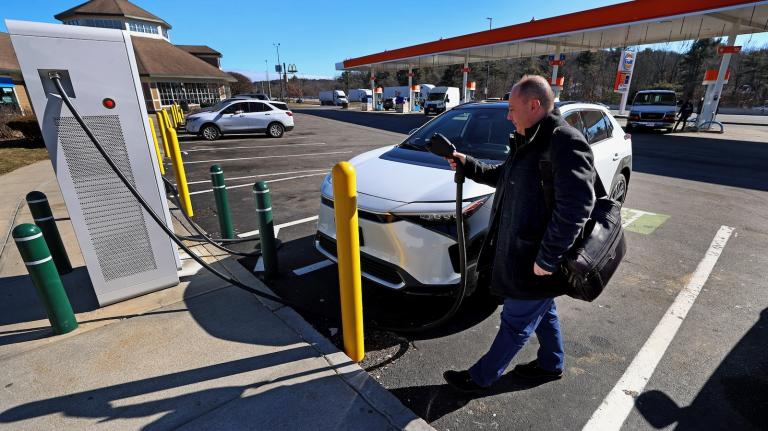Infrastructure’s curse is that we quickly take it for granted. It’s like that Louis CK bit on technology, but with sewers and electricity.
Infrastructure is amazing and nobody’s happy. Before infrastructure is in place, people want the infrastructure. Once it’s there, people ignore it until it breaks.

Image courtesy of BeijingCream.com.
The 18 million residents of Beijing are no longer ignoring their sewer system.
Over the weekend, the city was drenched by the most rain it had seen in a single day since the 1950s. Nearly seven inches fell in the afternoon and overnight, quickly overwhelming the city’s sewers. Thirty-seven people were killed: drowned, electrocuted, in collapsed homes, by lightning.
Outrage erupted immediately. Residents took to social media to document the storm — and to wonder “how a city that spent billions building facilities to host the Olympics could struggle so badly in dealing with a thunderstorm,” as the Wall Street Journal put it. The photos are really remarkable — evocative, if I may, of post-Katrina New Orleans. Swamped streets, flooded cars.
The sewer system failed spectacularly, even considering the unique scale of the storm. The government censored complaints online and in the media, asking that media focus on stories about “achievements worthy of praise and tears.” It doesn’t look like Beijing authorities are going to suffer for their failings; the mayor has resigned, but he’s still on track for a plum new job.
There’s a key way in which Louis CK’s point doesn’t exactly fit in this case. His argument was that we take new, awesome things for granted in short order. Beijing’s sewer system demonstrated that it is distinctly not awesome. Complaining about wi-fi outages on planes? Privileged obnoxiousness. Complaining about a major city crippled by the failure of its infrastructure? Warranted.
And, apparently, worthy of being censored.



